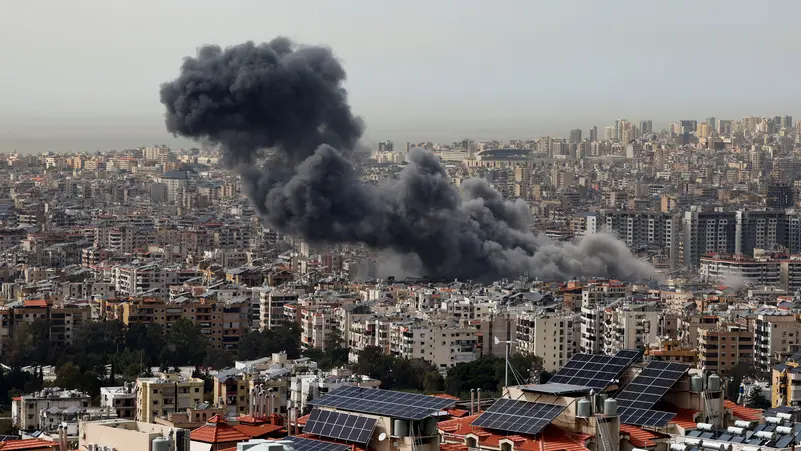Lebanon condemns Israeli strikes as Netanyahu and Katz threaten with military action
BEIRUT — Syriac Maronite Lebanese President Joseph Aoun and Prime Minister Nawaf Salam have strongly condemned Israel’s latest airstrike on Beirut’s southern suburbs, calling it a violation of the ceasefire agreement between Israel and Hezbollah. Meanwhile, Israeli Prime Minister Benjamin Netanyahu and Defense Minister Israel Katz warned that Israel would enforce the ceasefire by force if necessary.
Following the Israeli military’s strike on what it described as a Hezbollah-affiliated building in southern Beirut, President Aoun informed his French counterpart, Emmanuel Macron, that the attack constituted yet another violation of the ceasefire.
A fragile ceasefire under threat
Macron denounced the strikes as “unacceptable” and a breach of the fragile truce. Prime Minister Salam also condemned the attack, calling it a “dangerous escalation.” He ordered the Lebanese Armed Forces to investigate the site where rockets were reportedly launched toward Israel earlier in the day. The military later confirmed the discovery of the launch site but stated that the perpetrators remained unidentified.
Speaking after the strike, Netanyahu reaffirmed Israel’s stance, stating that the country would not hesitate to target any location in Lebanon that posed a security threat. “The equation has changed,” Netanyahu declared. “We will not tolerate attacks on our communities. We will continue to enforce the ceasefire with force if necessary.”
Defense Minister Katz echoed this sentiment, warning that the Lebanese government must uphold its end of the agreement by preventing Hezbollah from launching attacks. “If Lebanon fails to enforce the ceasefire on its side of the border, Israel will continue its operations,” Katz stated.
U.S. envoy Morgan Ortagus weighed in on the situation, arguing that a violation of the ceasefire had occurred. “Terrorists launched rockets at Israel, and Israel responded—this is its right,” she said. “There is nothing in the agreement that prevents Israel from defending itself.”
As tensions escalate, the latest exchange raises concerns about the durability of the ceasefire and the risk of further violence between Israel and Hezbollah. With international players urging restraint, the coming days will be crucial in determining whether both sides can prevent a wider conflict.

























